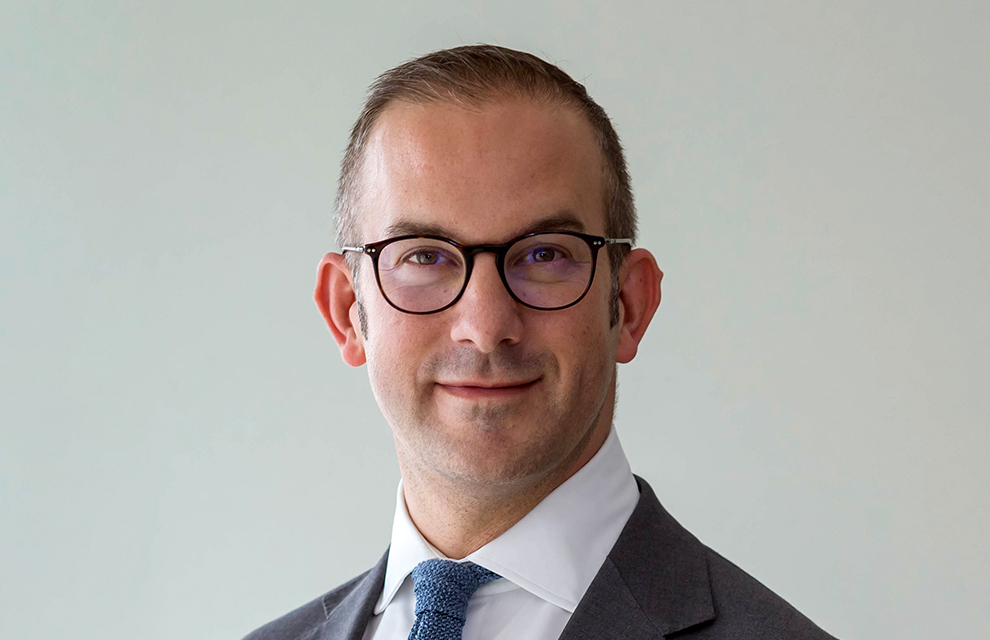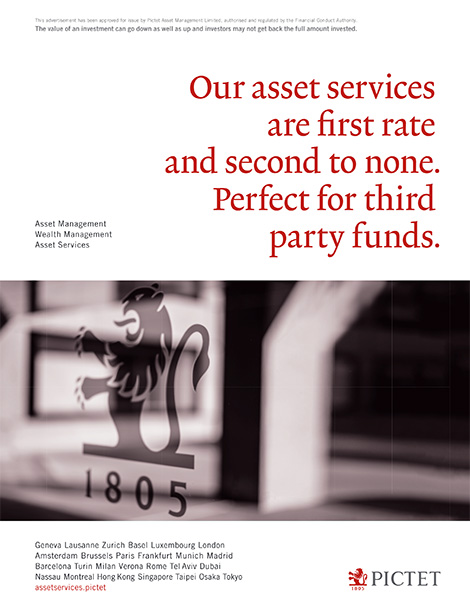In terms of investments, what asset classes have you seen gain popularity during the last year from your perspective? Has the COVID-19 pandemic influenced any noticeable changes in investors’ decisions?
The interest in the private market space, and notably private equity, is a trend that is definitely ongoing. We are responding to that accordingly and do not see any slowdown in that market dynamic. In terms of how COVID-19 influenced any noticeable changes in investor decisions, I think it has given the industry, as a whole, time to pause and reflect.
With COP26 we have seen more emphasis on sustainability and ESG-centric product types, product oversight and product interest.
Another trend we have been seeing is that portfolio managers are reviewing where they can add value to investors. In that sense, COVID-19 has created an opportunity for portfolio managers to reevaluate what sort of impact they are having on their clients and investors. For instance, maybe some of their skill sets may sit better with some boutique investment houses with a focus on a particular asset class.
So potentially, I sense a change in portfolio management personnel over the coming years. And indeed, we have seen some of that movement through part of our client base over the last six to 12 months.
Pictet now offers administration solutions across the globe. What are the current major regional differences in terms of clients’ demands for your fund administration services?
We have been building up a solid footprint of dedicated teams across Europe. What we see overall is that the private asset trend is continuing, and we are responding to it from a fund administration perspective.
From the dialogue we have been having with clients and prospective clients, Luxembourg has manifested itself as a winner over the last four years or so in that respect. The country has marketed their funds regime to great effect.
We support all types of fund structures that are present in Luxembourg from the traditional UCITS through to the more complex alternative funds as well.
What approach does Pictet take when operating across different jurisdictions from this perspective?
Clients’ needs come first, and that is a mantra that is held throughout the Pictet Group. This is all the more important, given the COVID-19 pandemic, and what the whole market has experienced as a result of that over the last two years.
It really is incumbent on front-office staff to understand client needs end to end. So whether it is clients in Asia, Europe, or in the UK, each client has particular nuances related to their investment strategy or their investor base and our front-office teams at Pictet need to dynamically respond to that in the right way.
What is Pictet UK currently working on to further strengthen its asset servicing technological offerings, across its fund services, custody and trading space?
There are four key themes in that respect. The first one is product development for our external asset manager clients, which ranges from digital onboarding of end clients’ accounts through to external portfolio management system (PMS) integration.
We have an internal work stream that is focused on PMS integration to align to finance order management and portfolio management systems, for which we also have digital solutions driven by our online web based platform, Pictet Connect.
The second area is product development for fund managers, notably on the transfer agency side; more information is available via our fund library online tool. On this front, we are also working on a cost oversight tool that offers our clients a breakdown of the underlying costs involved in operating their funds.
The third area of focus relates to an increase in bespoke reporting for institutional clients, particularly from a multi-manager perspective. This is an area of importance for us as we see more interest in the appointment of big boutique managers or specialist managers for specific mandates, where we can align the overall reporting on a client’s behalf.
And lastly, the fourth area is ESG where we now have a dedicated website. ESG is no longer something that anybody can ignore, particularly with COP26 which took place in Glasgow last year.
Our website will guide clients through the regulatory changes taking place surrounding ESG. We are able to offer a self assessment tool, available to both clients and prospective clients looking at their current or forthcoming ESG strategy. It also gives general information around the Sustainable Finance Disclosure Regulation (SFDR).
How has Pictet UK helped to prepare its clients for the changes that Brexit has brought, particularly in terms of fund registration and redomiciling? What has been your experience in helping them prepare for these hurdles?
Much has been written about the substance required in the EU for UK managers and the reality for us is that Brexit is in the rearview mirror for many significant UK market participants.
We have been surprised by the readiness of the industry and the impact analysis from some managers thinking about the response to Brexit and what comes of distribution and marketing in the EU.
Pictet has been there to support our clients through these changes. We have a dedicated distribution support team in Luxembourg who help clients navigate the requirements for distribution in each particular market, which is now even more pertinent than had been the case pre-Brexit. We also offer a range of white-label funds, which is again pertinent in the context of Brexit.
What are the most pressing regulations for Pictet and, in particular, its UK and European-based clients today? How is Pictet assisting its clients to manage these regulatory transitions?
As previously mentioned, Sustainable Finance Disclosure Regulation (SFDR) is something that we are very aware of. There is continual discussion internally and training for our front-office staff to support our clients through this new regulatory regime.
From an ESG perspective, we have three themes that we are working on to help our clients respond to SFDR. Firstly, the regulatory transition which should be finalised in 2022 and includes taxonomy alignment, for instance. Then, we are developing ESG client reporting, which will be a digital-first or digital-native ESG experience for clients.
Lastly, we also have our European ESG template that we are working on, which we are looking to roll out over the next 12 to 24 months, which will help clients respond to all of the regulatory reporting requirements under SFDR.
Although SFDR is the standout regulatory change that has everybody’s attention at the moment, I would also mention the Markets in Financial Instruments Directive (MiFID III) which is coming whether market participants are ready or not. At Pictet we have been looking at this regulation from a very high level to begin with and noted the ESG elements of MiFID III. Consequently, we feel very well aligned to prepare for both of those forthcoming regulations.
What will Pictet UK be working on in 2022?
In the UK, but also group-wide, we will be working on initiatives to directly add value for clients. These initiatives range from ESG, to regulatory reporting, through to risk and compliance enhancements, as well as continuing our day to day best-in-class service for clients.
From a UK perspective, we will be focused on proximity to clients — Brexit or no Brexit, there still remains a large number of decision makers and portfolio managers here in the UK.
It will be our job to work closer with them, so that we can truly support the decision making centres of London in this context.
This philosophy of client proximity will be played out to an even greater extent throughout the Pictet Group in the future.



